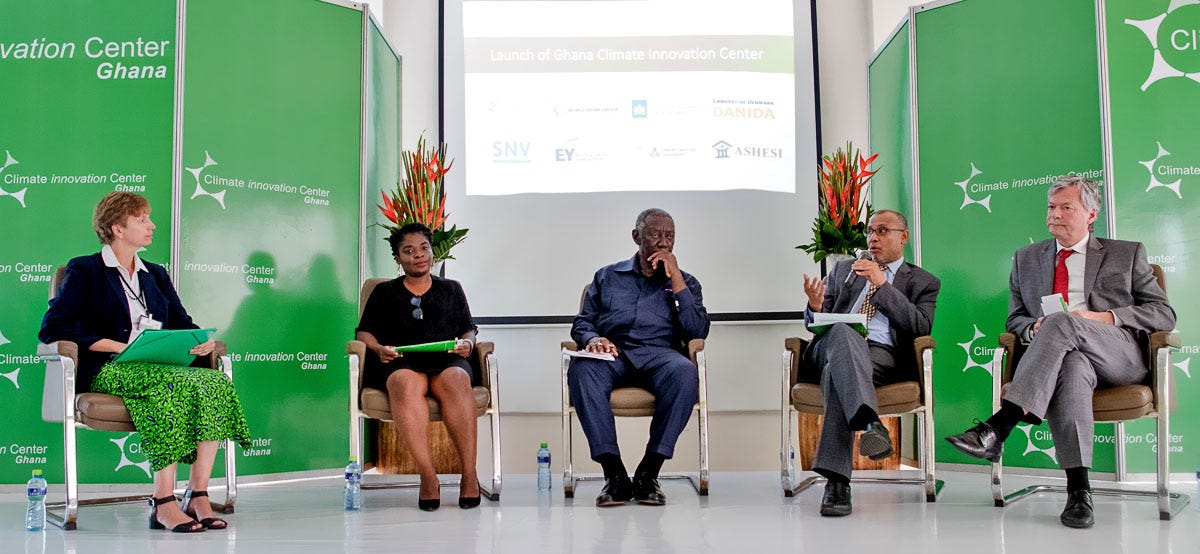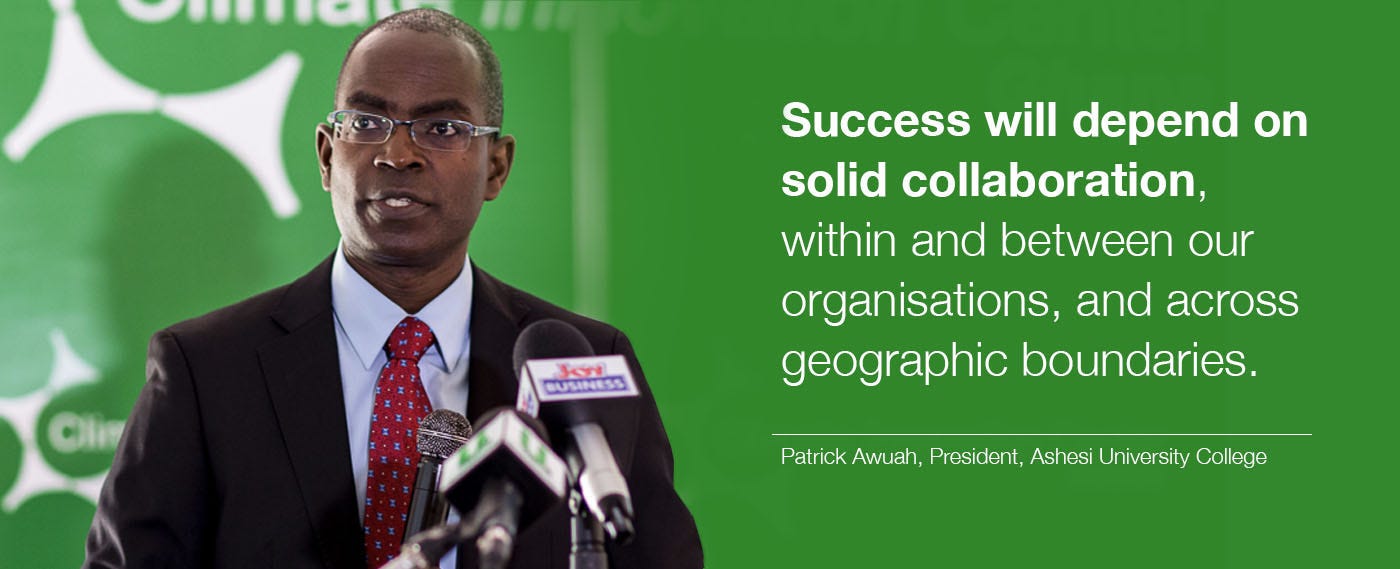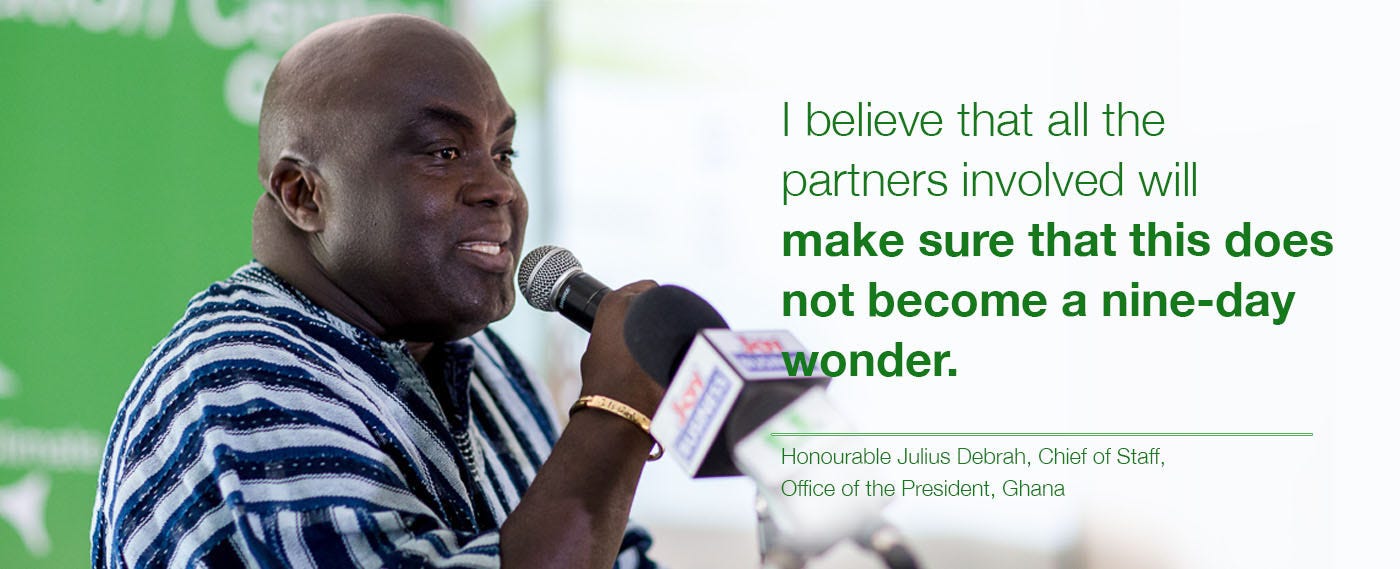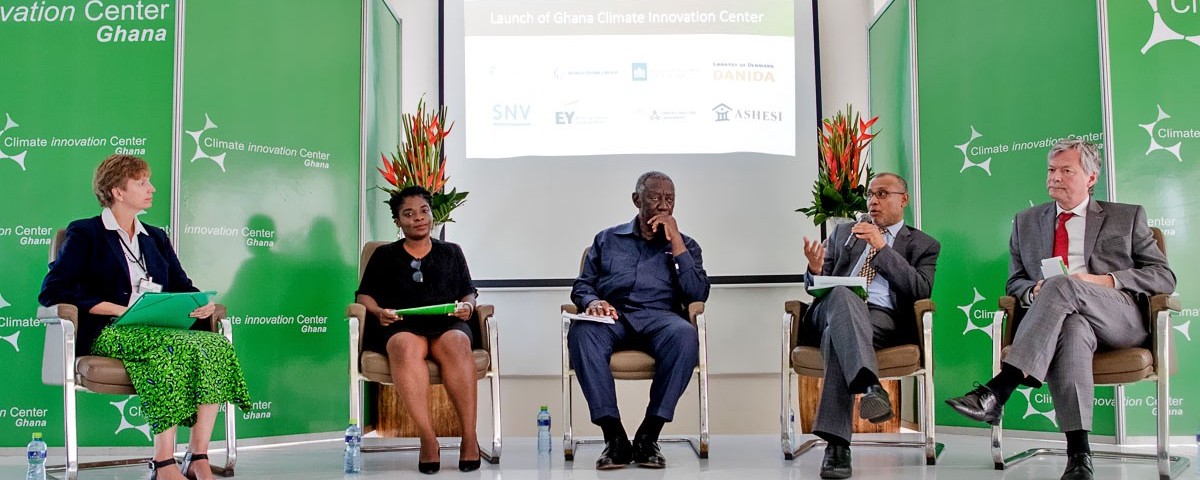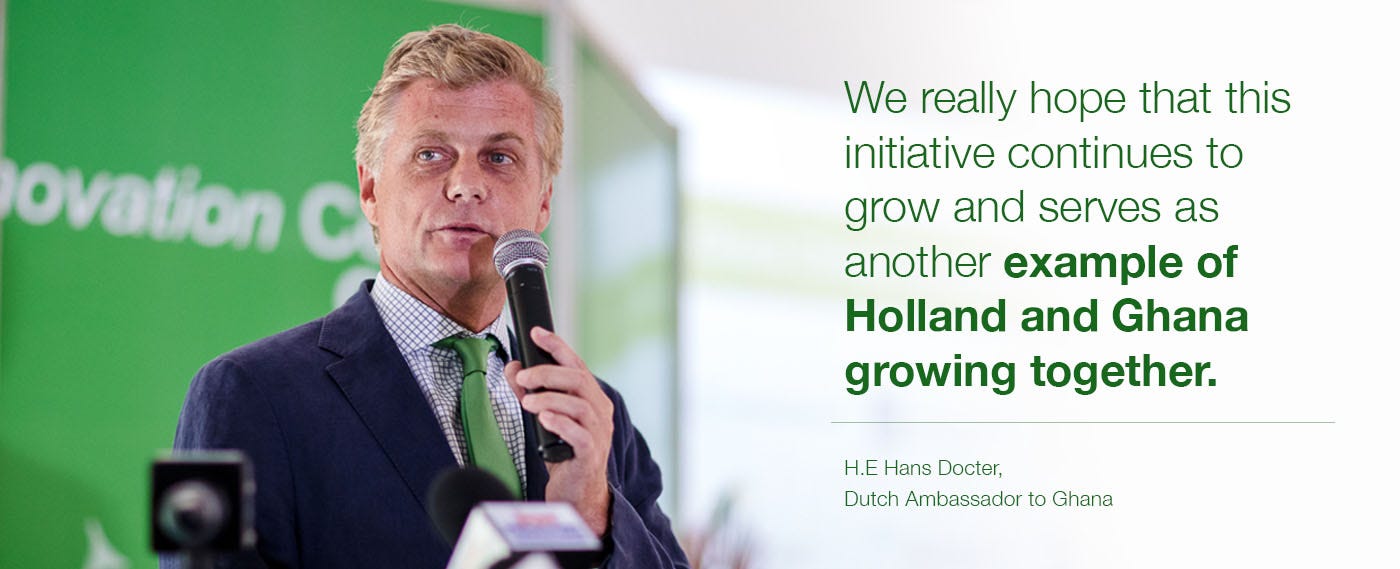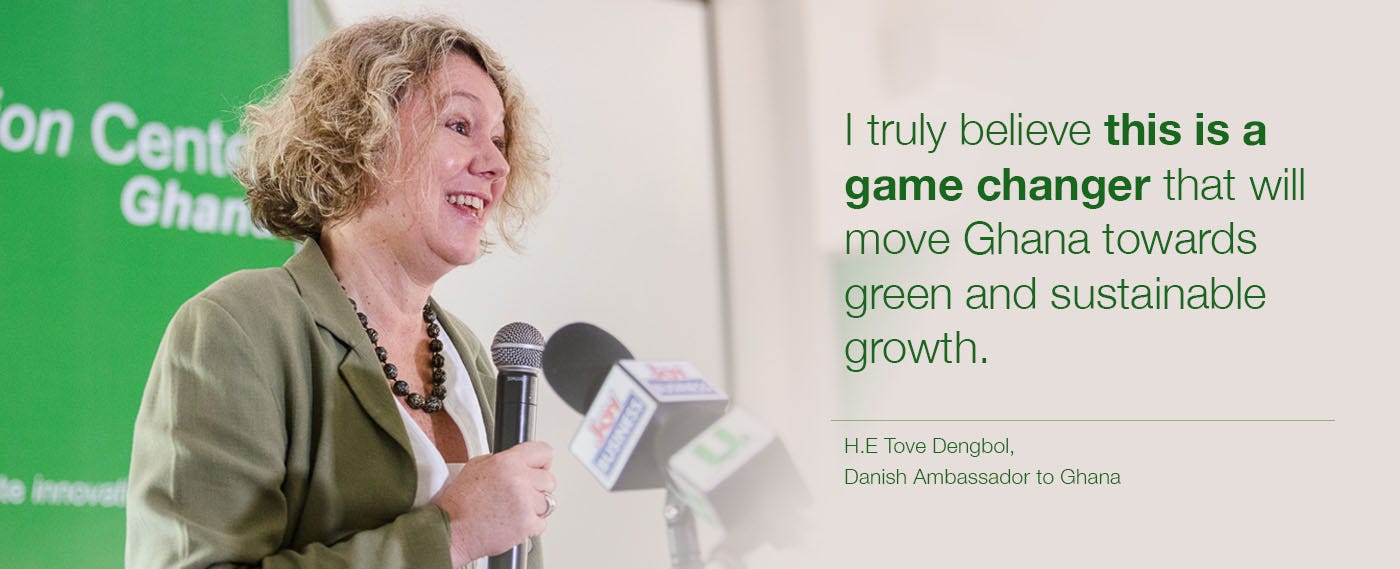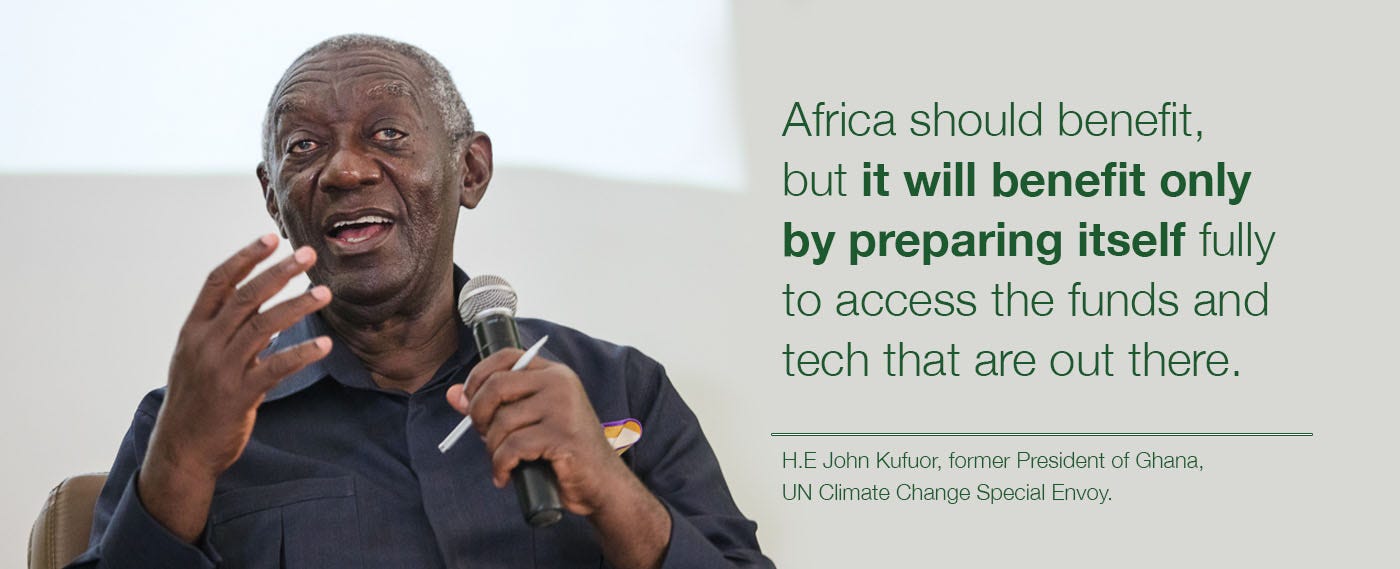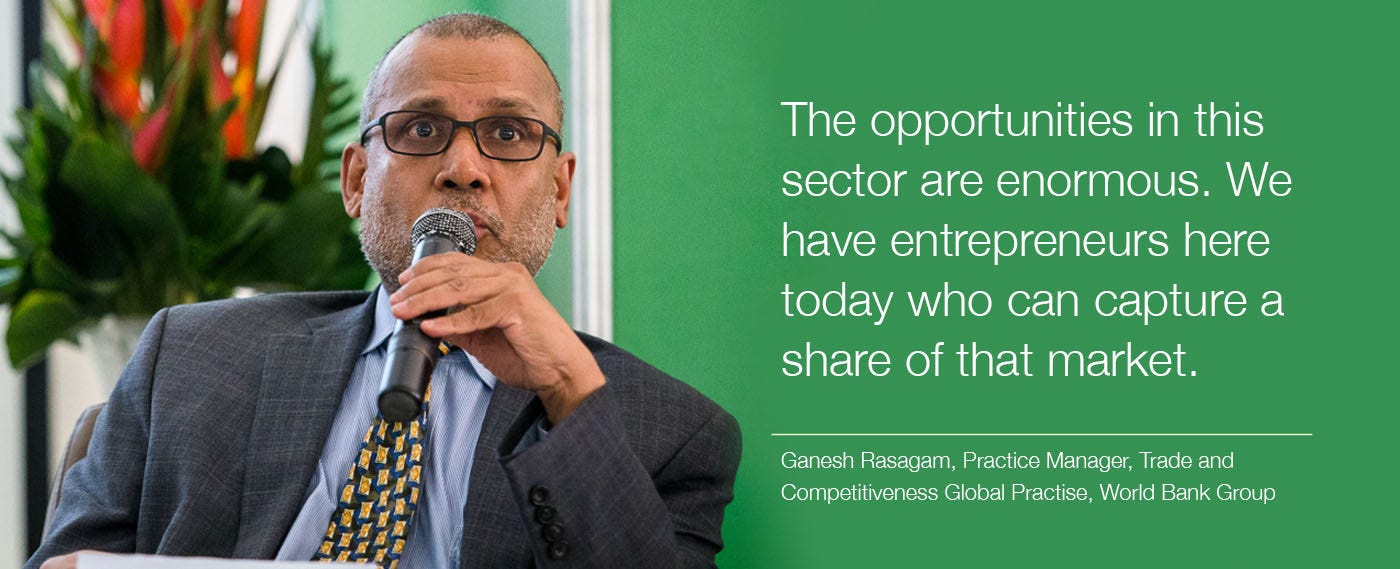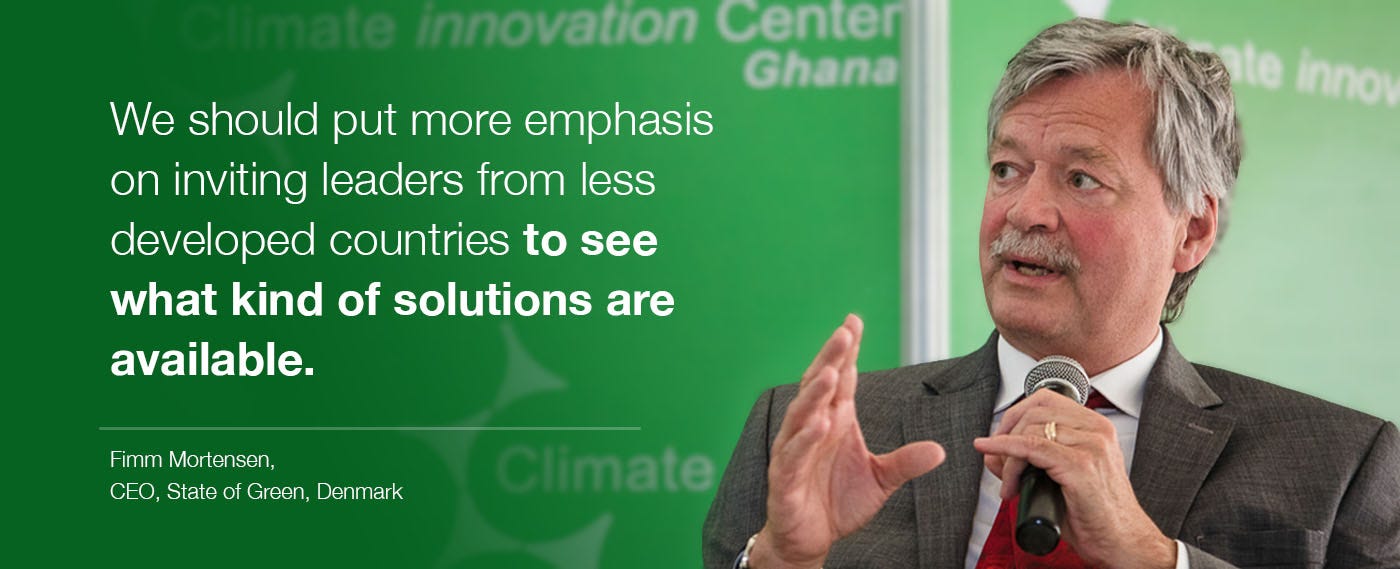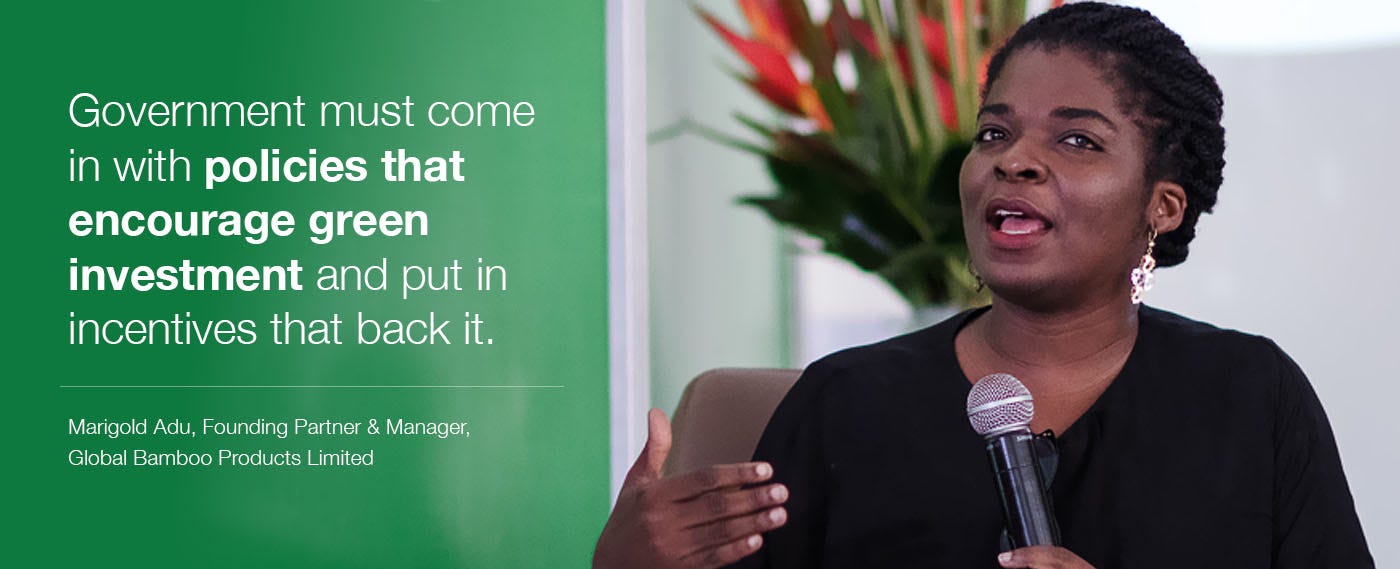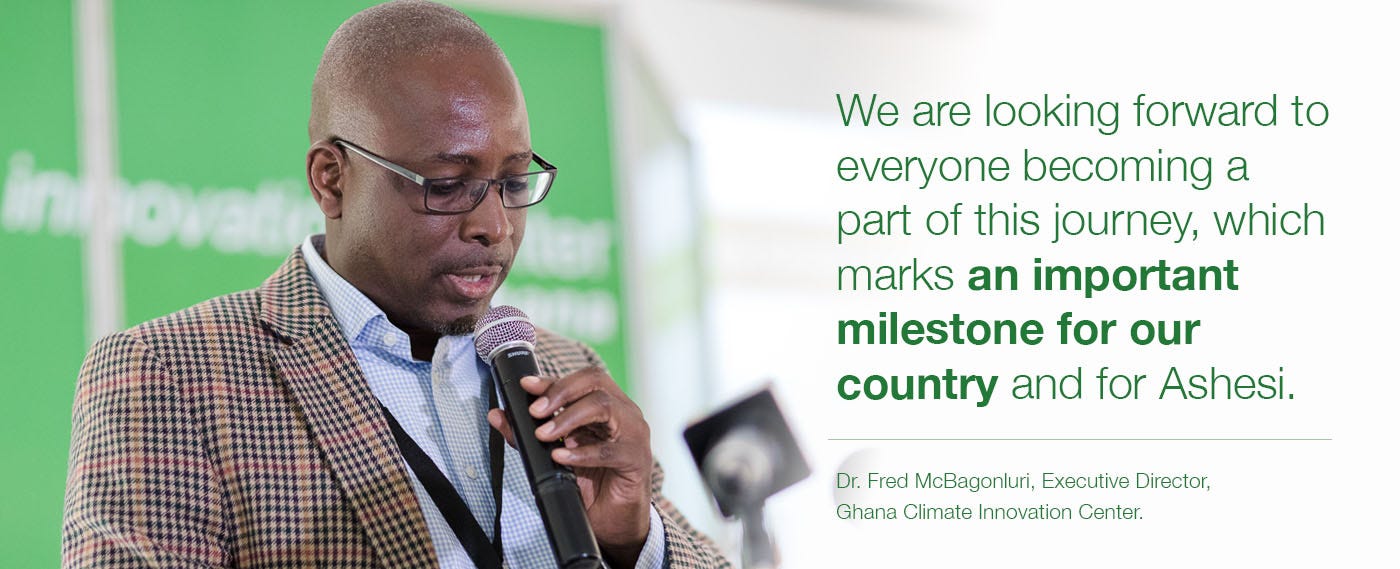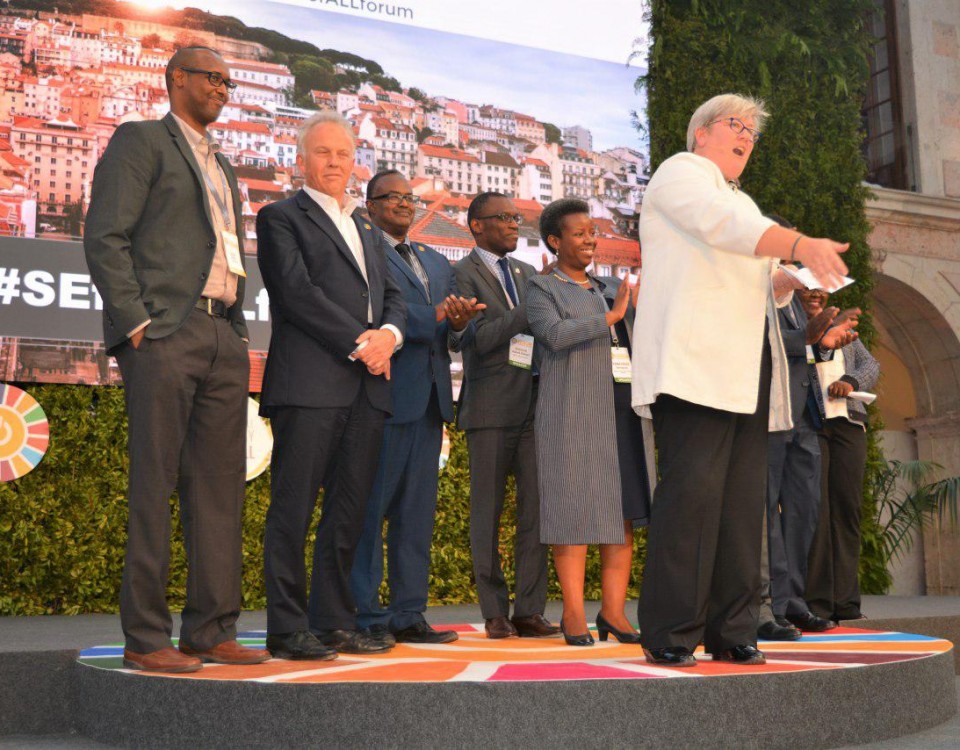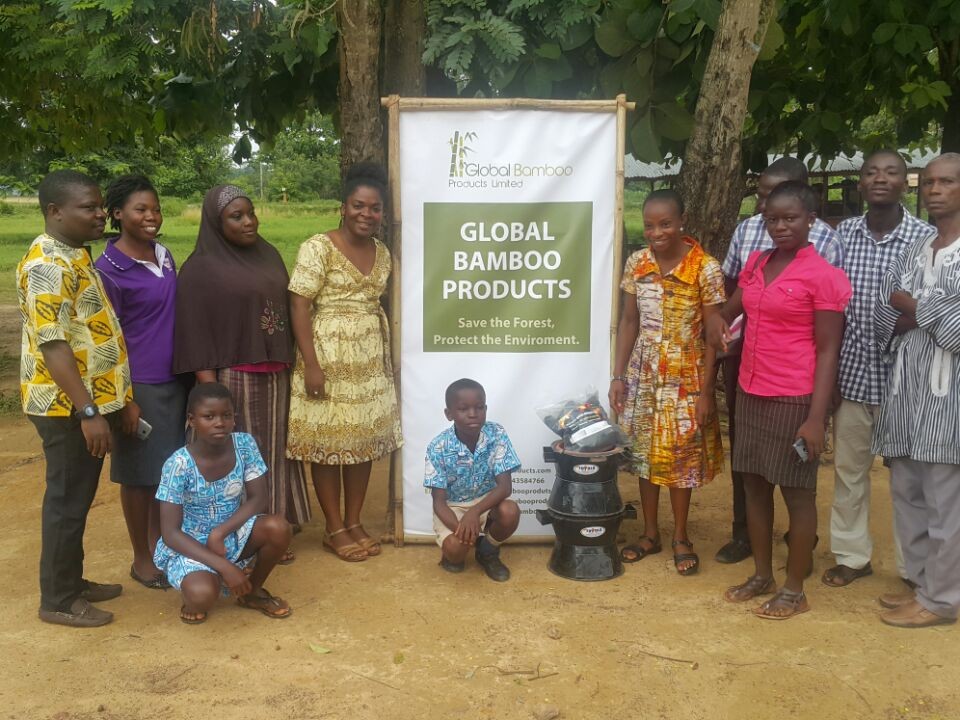“One of the first activities that the Ghana Climate Innovation Centre developed, is a good example of what you can do in the face of challenges. They organised a business challenge for a group of entrepreneurs here in Ghana, and said to them, “what do you see around you? What are the problems? How can you turn them into opportunity?” I was really bowled over by all the ideas and innovative business that developed out of that. And that was even before what you see here today. We really hope as the Dutch government that this initiative continues to grow and is another example of Holland and Ghana growing together.”
— H.E Hans Docter, Dutch Ambassador to Ghana.
“Ashesi University and its partners have the daunting yet doable task of starting and leading the green revolution through the GCIC to challenge the status quo, while at the same time it will help create new and decent jobs. […] Today we experience an important step that will boost innovation, development and the private sector. I truly believe it will be game changer that will move Ghana towards green and sustainable growth.”
— H.E Tove Dengbol, Danish Ambassador
“We should hope that the renewed efforts that came together in Paris, attracting as many as 195 countries to agree to do something on climate change, should help us. But the sting is the tail. How are African countries positioning themselves to benefit from the extended help? As much as the world might want to help, we should have the human resource and the business sense to create absorptive capacity. Government policy will be the central driving force in all this; it’s only government that will have the capacity to move its people. So yes, Africa should benefit, but it will benefit only by preparing itself fully to access the funds and technologies that are out there.”
— H.E John Kufuor, former President of Ghana and UN Climate Change Envoy.
“The World Bank Group did a study which showed that the global market for clean technology products in the coming decade is $6.4 trillion dollars; of which about $325 billion is the size of the market for sub-Saharan Africa. The opportunities in this sector are enormous. We probably have entrepreneurs here in this room today who can capture a share of that market, for Ghana and for the region. […] The policy environment has to enable that kind of entrepreneurship culture.”
— Ganesh Rasagam, Practice Manager, Trade & Competitiveness Global Practise, World Bank Group
“If you look back today at what has happened since the late seventies you will see that Denmark has succeeded in creating economic growth to the tune of approximately 70% to 80% in real terms, while at the same time maintaining the same level of energy consumption. We have been able to decouple energy consumption from economic growth. […]
We succeeded through various means, primarily with the stick and carrot method; the stick being high energy taxes within the period, and the carrot being various incentive schemes over the years. The lessons learned in Denmark and in other energy efficient countries in the world, really suggest that we should put much more emphasis on inviting people from developing and less developed countries to our own countries to see what kind of solutions are available.”
— Fimm Mortensen, CEO, State of Green, Denmark
“Bamboo in itself has the potential to create jobs for more than a 100,000 people; it has economic value worth billions of dollars, and its nature creates sustainable environmental balance. The GCIC is a great partner for accelerating a business like mine moving forward; from what it has done so far, Global Bamboo has now moved from a startup to continuously churning out new products, and we are entering the market with new products. It is key that the CIC is in Ghana now. […]
How have we been able to find the financing? We have had to be creative with what we offer. Some of our financing has come out of affiliations with the right people who our business can be relevant to. But it is important that investors see economic value first, and then social impact value. Government must come in with policies that encourage green investment and puts in incentives that back it.”
— Marigold Adu, Founding Partner & Manager, Global Bamboo Products Limited
“Today marks an important step for the Ghana Climate Innovation Center. Getting here has taken the collective efforts of many people, most of whom have been recognised here today. We are looking forward to everyone becoming a part of this important journey, which marks an important milestone for our country and for Ashesi.” — Fred Mcbagonluri, Executive Director, Ghana Climate Innovation Centre.
Source : Medium – Ashesi University
